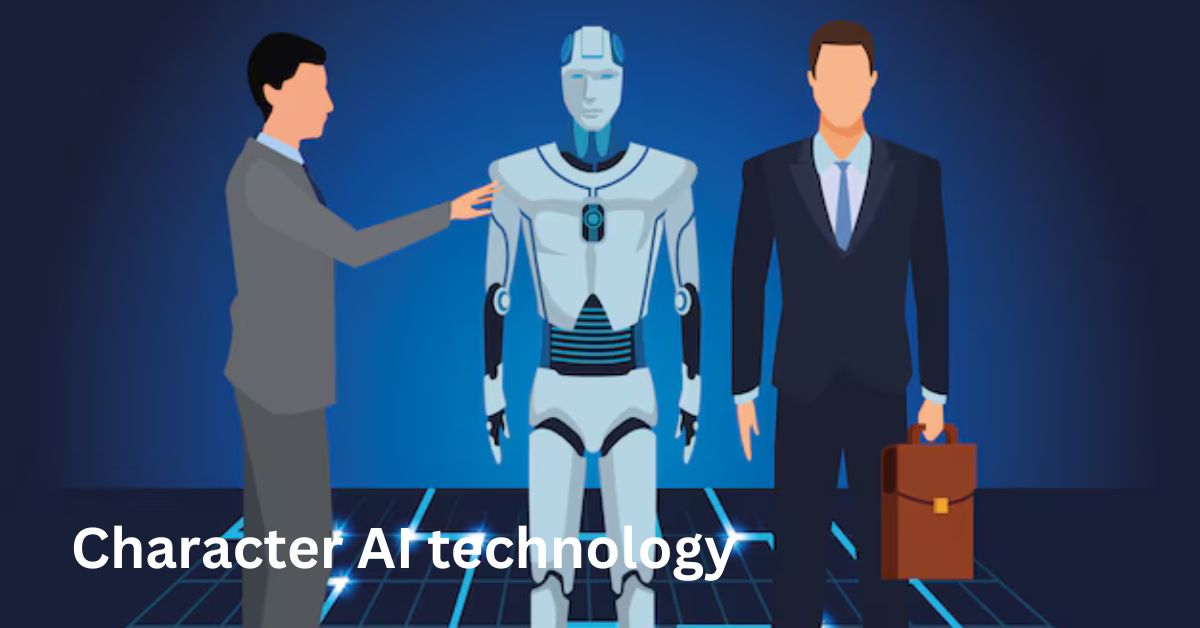Character AI technology has revolutionized the way we interact with digital environments, merging human-like characteristics with artificial intelligence. This technology offers unique opportunities for engagement, entertainment, and education, transforming everything from video games to customer service. As we delve into this fascinating world, we will explore what character AI is, its applications, benefits, and the ethical considerations that accompany its rise.
What is Character AI?
Character AI refers to artificial intelligence systems designed to emulate human behavior, emotions, and personality traits. These systems can interact with users in a realistic manner, often through conversation or visual representation. By utilizing natural language processing (NLP), machine learning, and advanced algorithms, character AI can understand context, respond appropriately, and even learn from interactions.
The development of character AI has roots in various fields, including psychology, linguistics, and computer science. The goal is to create digital characters that can simulate real human interactions, providing a more engaging experience for users. This technology not only enhances user interaction but also contributes to the personalization of digital experiences.
Applications of Character AI
The applications of character AI are vast and diverse. One of the most prominent uses is in the gaming industry. Developers integrate character AI to create non-playable characters (NPCs) that can interact with players in a more lifelike manner. These NPCs can adapt to player behavior, making the gaming experience richer and more immersive.
In the realm of customer service, businesses increasingly adopt character AI to enhance user experience. Virtual assistants powered by character AI can handle inquiries, provide recommendations, and resolve issues without human intervention. This not only increases efficiency but also allows businesses to operate around the clock, improving customer satisfaction.
Moreover, character AI is making waves in education. Educational platforms utilize AI-driven tutors to offer personalized learning experiences. These AI characters can assess student performance, adapt teaching methods, and provide immediate feedback, making learning more interactive and effective.
The Benefits of Character AI
One of the primary benefits of character AI is its ability to create engaging interactions. Users are more likely to connect with a character that exhibits human-like qualities, leading to increased user retention and satisfaction. This engagement can be particularly beneficial in areas like marketing and branding, where creating a memorable experience is crucial.
Another significant advantage is scalability. Character AI can handle thousands of simultaneous interactions, making it an invaluable tool for businesses with large customer bases. This capability allows companies to maintain a high level of service without the need for additional human resources.
Furthermore, character AI enhances accessibility. Digital characters can be programmed to communicate in multiple languages, cater to various learning styles, and provide support for individuals with disabilities. This inclusivity broadens the reach of services and products, ensuring that more users can benefit from technology.
Challenges and Limitations
Despite its many advantages, character AI also faces challenges. One major concern is the authenticity of interactions. While character AI can simulate human behavior, it often lacks true emotional understanding. This limitation can lead to miscommunication, as users may expect a level of empathy and understanding that the AI cannot provide.
Another challenge is the potential for bias in AI algorithms. If character AI systems are trained on biased data, they may perpetuate stereotypes or offer skewed responses. Developers must ensure that their training data is diverse and representative to mitigate this risk.
Additionally, the reliance on character AI raises questions about privacy and data security. As these systems collect data from user interactions, there is a risk of misuse. Ensuring that user data is handled responsibly is paramount to maintaining trust in character AI technologies.
Ethical Considerations
The rise of character AI prompts significant ethical discussions. One key concern is the potential for manipulation. As character AI becomes more advanced, there is a risk that users may be influenced or manipulated by AI-driven characters, especially in marketing or political contexts. It’s essential to establish guidelines to ensure transparency in how character AI is used.
Another ethical issue relates to the emotional attachment users may develop toward AI characters. As these characters become more lifelike, users might form bonds that can lead to emotional distress if the AI behaves unpredictably or is removed from use. Developers should consider the psychological implications of their creations.
Moreover, the creation of character AI that resembles real people raises questions about consent and representation. Using someone’s likeness or personality without permission can lead to legal and ethical complications. Developers must navigate these issues carefully to respect individual rights and maintain ethical standards.
Future of Character AI
The future of character AI looks promising, with continuous advancements in technology. As machine learning algorithms improve, we can expect more sophisticated interactions that are closer to genuine human conversations. This evolution will likely enhance user experiences across various sectors, from entertainment to education.
Moreover, the integration of character AI with virtual and augmented reality will create immersive environments where users can interact with AI characters in new and exciting ways. Imagine engaging with a virtual tutor in a classroom setting or exploring a game world filled with responsive characters that adapt to your actions.
As character AI becomes more prevalent, its impact on society will grow. Policymakers and developers must work together to establish ethical frameworks that guide the responsible use of this technology. By addressing concerns such as bias, privacy, and emotional attachment, we can harness the benefits of character AI while minimizing potential risks.
Conclusion
Character AI technology represents a remarkable evolution in how we interact with digital environments. Its applications span multiple industries, offering benefits such as enhanced engagement, scalability, and accessibility. However, challenges and ethical considerations must be addressed to ensure its responsible use.
As we look to the future, the potential for character AI to transform our experiences is immense. By fostering innovation while prioritizing ethical standards, we can create a world where character AI enriches our lives in meaningful ways. Embracing this technology with a thoughtful approach will help unlock its full potential, shaping a future where digital and human interactions coexist harmoniously.










